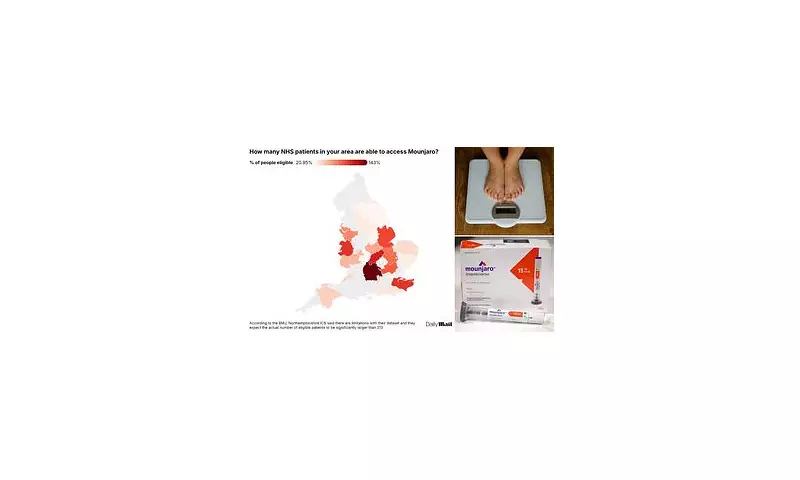
A damning new report has exposed a severe postcode lottery within the NHS, leaving thousands of eligible patients across England unable to access the groundbreaking diabetes and weight loss medication, Mounjaro.
Data analysed by the Daily Mail reveals that in some of the worst-affected areas, a staggering 90% of eligible type 2 diabetes patients are being denied the 'game-changer' drug, also known as tirzepatide, due to arbitrary local funding restrictions.
The Stark Reality of the Postcode Divide
The investigation pinpoints specific Integrated Care Boards (ICBs) as the primary culprits. North East London ICB is performing the worst, with a shocking 0% of its eligible patients able to get a prescription. This is closely followed by Frimley ICB at a mere 6% and Suffolk and North East Essex ICB at 9%.
This stands in stark contrast to the best-performing areas, such as Gloucestershire ICB, which has made the drug available to 96% of its eligible patients, proving that widespread access is possible.
What is Mounjaro and Why is it in Such High Demand?
Mounjaro (tirzepatide) has been hailed as a revolutionary weekly injection for managing type 2 diabetes. Its significant side effect of promoting substantial weight loss has also generated immense demand. The drug was officially approved for NHS use in England last year by the National Institute for Health and Care Excellence (NICE) for adults with poorly controlled type 2 diabetes.
NICE guidelines clearly state that it should be prescribed alongside diet and exercise, yet local ICBs are creating their own additional, restrictive criteria, effectively blocking access.
The Human Cost of Bureaucratic Barriers
This isn't just a story of statistics; it's about real people being denied a treatment that could drastically improve their health and quality of life. Patients and clinicians are expressing deep frustration at the bureaucratic hurdles preventing them from using a legally approved and effective medication.
Charities like Diabetes UK have condemned the situation, labelling the variation in access as 'unacceptable' and warning that it creates a two-tier system where a patient's treatment depends entirely on their address.
A Call for Action and Equitable Access
The report has ignited calls for NHS England to intervene and ensure a consistent, national approach to implementing NICE guidelines. The current system allows ICBs to effectively overrule national decisions, leading to widespread inequality.
Until a national solution is enforced, millions of patients across England will continue to face an unfair fight for a drug that could transform their health, based not on clinical need, but on their postcode.





